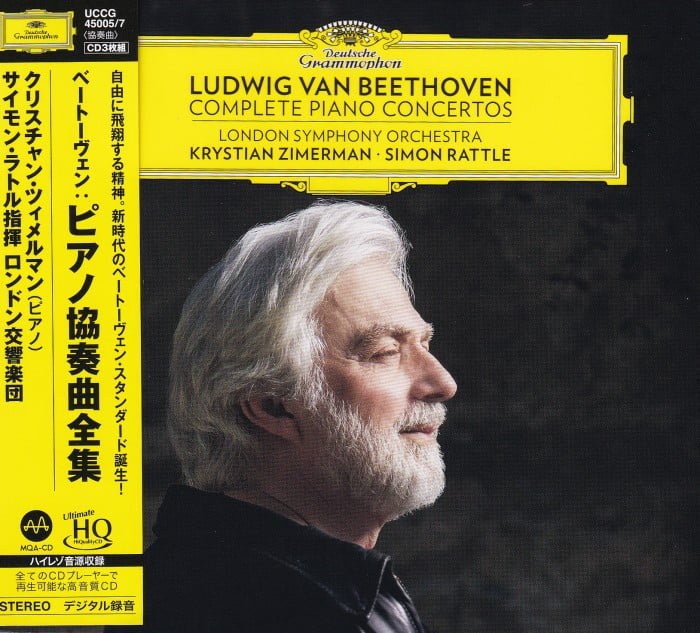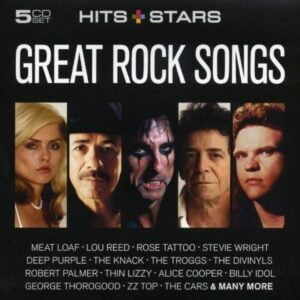Krystian Zimerman, Simon Rattle and the London Symphony Orchestra present Ludwig van Beethoven’s 5 piano concertos. In 1989, the exceptional Polish pianist and Leonard Bernstein made an outstanding reference recording of Beethoven’s piano concertos No. 3, 4 and 5. At the time, both agreed on their commitment to music and produced an extraordinary recording. Unfortunately, Amber died before the cycle was completed. In 1991, Zimerman conducted the remaining Concerts No. 1 and 2 himself from the piano.
30 years later Zimerman returned to Beethoven’s piano concertos. His reinterpretation with Sir Simon Rattle and the London Symphony Orchestra was a highlight of the Beethoven year 2020.
UHQCD stands for Ultimate High Quality Compact Disc and is a joint development of the Japanese CD replication company Memory-Tech and the Audio Quality CD Company from Hong Kong. Unlike conventional CDs, UHQCDs are not pressed from polycarbonate, but rather cast from a photopolymer and cured with UV light. Another layer of high-purity polycarbonate is applied to protect the softer photopolymer from scratching. The combination results in a significantly reduced reflection of the laser light inside the CD and an unequaled precise edge transition between pits and lands of the CD. UHQCDs are 100% compatible with normal CD players. Musically, the result is a sound that is strongly reminiscent of analog master tapes.
The discs offered by Universal Japan are also MQA (Master Quality Authenticated) encoded. Anyone who outputs the digital signal from the digital output of their CD player or the previously ripped data stream from their music server to a corresponding MQA-DA converter can generate a 24-bit signal with a sampling frequency of up to 352 kHz from the CD data.
While the first UHQCD series by Universal Music Japan relied on the DSD data of previous SHM-SACD releases, albums that had not previously been released as SHM-SACD are now also appearing with increasing popularity. For this purpose, the master tapes of the Universal Archive are typically converted to DSD and then post-processed with the appropriate MQA encoder. The UHQCDs are therefore ideal for music lovers who want to get as close as possible to the sound of the recording, but do not have an SACD player.














